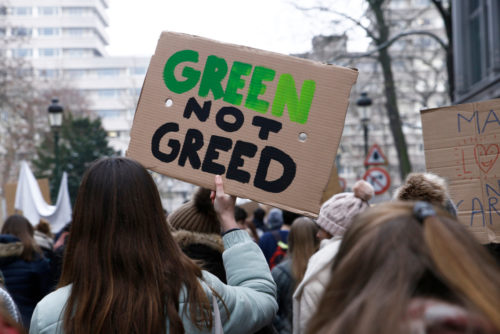CLIMATE CHANGE NEWS COMES thick and fast. Here’s the news from last week. UN chief António Guterres warned attendees at Davos that the world is “losing the race” against climate change; news outlets reported that the topic dominated the conference for the corporate world’s great and good.
Amid the gloomy predictions, there was then some good news for business and stock pickers. According to a report from CDP, a not-for-profit that gathers data from corporate climate change disclosures, the stocks of companies that implement the best climate change policies perform better.
Dexter Galvin, a director at CDP, said the STOXX Global Climate Change Leaders Index—companies that score an A grade against CDP indicators—”outperformed” the STOXX Global 1800 by 5.4% from December 2011 to July 2018. This “demonstrates that the leadership on environmental issues shown by the A list goes hand in hand with being a successful and profitable business,” according to Galvin.
Good climate change behaviour
Stock performance wasn’t the only update CDP issued. The latest report also named-checked Apple, French fragrance producer Firmenich, Johnson & Johnson, L’Oreal, Mitsubishi Electric, Nestlé and Unilever for being among the leading companies when it comes to helping battle climate change.
Examples of good climate change behaviour includes Best Buy US, which helped customers cut utility bills equating to the removal of 55,000 cars from America’s roads; and LEGO, the toymaker, now makes some of its bricks from plant-based plastics and has committed to making all LEGO products from sustainable material by 2030. Danish healthcare company Novo Nordisk sources 79% of its energy from renewable sources and aims for 100% by next year.
The trend is interesting. Despite the difficulties in negotiating climate change deals internationally, many companies continue to introduce policies to help beat global warming. US companies do it despite Washington’s withdrawal from the Paris Agreement, a clear sign that companies feel pressure from elsewhere rather than legislators.
There’s a good reason for this. Increasing evidence points to investment managers being instrumental by leveraging pressure on boards to change. What investors want clarity about is a company’s exposure to climate change risk, because failure to change tack soon enough could harm long-term investments.
Tegwen Le Berthe, head of ESG development at CPR Asset Management, says the kind of data CDP produces helps influence their stock selection. “We need to know how exposed a company is to environmental risks and their long-term strategy for the low-carbon transition, in order to identify future market leaders.”
Investor Agenda project
CPR is not the only fund manager demanding climate change improvements. In September last year a coalition of organisations launched the Investor Agenda project, which aims to persuade asset managers to sign up to the project’s agenda.
So far, 400 investors with around $32trn under management are implementing at least some of the programme. They are backed by guidance from the G20’s Task Force on Climate-related Financial Disclosure (TCFD) on how to report on issues relating to carbon production.
Companies are under increasing pressure to use the guidance. Many commentators predict a wave of reports from global companies using the TCFD’s guidance in 2019. Chances are companies will report when they have a good story to tell.
Let’s hope the stories are credible. Some reports suggested that a record number of private jets were due to fly into Davos last week. Some leaders will take longer than others to fully buy-in to the climate change agenda.





